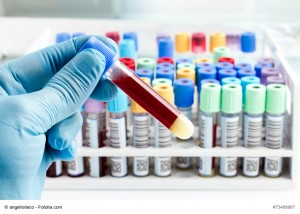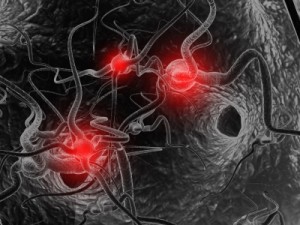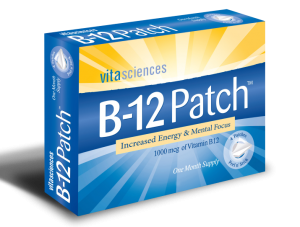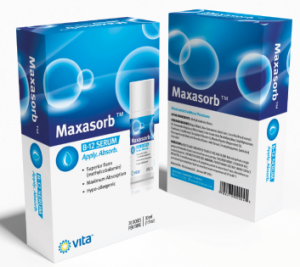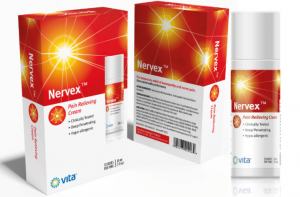Vitamin B12 Deficiency Symptoms cannot be ignored! If you have any of the most common symptoms- fatigue, depression, memory loss, painful “pins and needles” in the hands and feet- then you’re in for a shock. There’s a lot more to vitamin B12 deficiency than you may realize.
Vitamin B12 Deficiency Symptoms
Vitamin B12 is essential for so many primary biological functions that are necessary for survival- your nervous system, hormonal balance, cognitive functioning, metabolism, cell formation, to name just a few. It’s no wonder that when vitamin B12 levels are even marginally low, the results can range from annoying and disturbing to debilitating and catastrophic.
Pernicious anemia
In years past, pernicious anemia from severe vitamin B12 deficiency used to be fatal. Today, thanks to vitamin B12 supplementation, we are able to maintain normal levels of vitamin B12, even in spite of vitamin B12 malabsorption from autoimmune disorders and gastrointestinal illnesses.
But until you learn to recognize the earliest symptoms of vitamin B12 deficiency, you’re at risk for pernicious anemia and all the damage that it can cause throughout your system.
Symptoms of low B12
Here are 99 ailments that often occur in people with moderate to severe vitamin B12 deficiency, including comorbid conditions and direct symptoms.
- Symptoms of anemia- peripheral (megaloblastic) anemia from vitamin B12 deficiency
- Painful tingling and numbness in extremities (hands, fingers, toes)- paresthesias
- Peripheral nerve damage from demyelination
- Poor motor control in arms and legs
- Constantly dropping things
- Dizziness, poor equilibrium
- Gait disturbances, difficulty walking straight
- Vertigo, sensation of spinning when at rest
- Confusion
- Slow thinking, brain fog
- Difficulty remembering words or names
- Agitation
- Depression
- Chronic overwhelming fatigue
- Poor concentration, attention problems
- Difficulty completing tasks
- Mood changes
- Memory loss
- Unusual sudden anger
- Psychosis
- Age-related dementia
- Paranoia
- Hallucinations
- Anxiety attacks, panic
- Sore muscles, painful burning
- Tremors, trembling
- Frequent muscle fatigue
- Difficulty building muscle tissue, even with exercise
- Exercise requires several days of recuperation
- Neck pain
- Headaches
- Tight muscle pain in the arms and legs
- Joint pain
- Morning muscular stiffness
- Muscle spasms, twitches
- Tender spots as evident in fibromyalgia
- Bursitis- pain in elbows, shoulders, and hips
- Extreme sensitivity to hot or cold foods- pain in mouth, teeth
- Sore tongue, burning sensation
- Red tongue that is abnormally smooth, without texture
- Canker sores, mouth pain
- Sores at corners of mouth
- Dry mouth
- Altered sense of taste
- Unusual thirst
- Metallic taste in mouth
- Olfactory hallucinations
- Pain in bladder without uterine infection
- Stomach pain
- Nausea
- Constant bloating
- Difficulty swallowing food
- “Frog in throat” sensation
- Acid reflux, GERD
- Heartburn
- Flatulence
- Loss of appetite
- Constipation
- Diarrhea
- Esophageal ulcers
- Inflammatory Bowel Disease (IBD), Crohn’s disease
- Dairy sensitivity
- Unusual weight loss or weight gain
- Poor libido
- Hormonal problems
- Low sperm count
- Erectile dysfunction
- Infertility
- Post-partum depression
- Frequent miscarriage, early abortion
- Failure to thrive in infancy
- Language delays
- PMS, difficult menstrual periods
- Chronic yeast infections
- Early onset menopause
- Pale complexion
- Heart palpitations
- Shortness of breath
- Weak pulse
- Thyroid disorders– Hashimoto’s
- High levels of homocysteine
- Sensory issues- hypersensitivity to touch, scents, textures, tastes, bright lights and noises
- Sleep problems, insomnia
- Sleep that does not restore energy
- Night terrors
- Vision problems- blurring, photosensitivity, poor night vision
- Optic neuritis
- Tinnitus – ringing in ears
- Hyperacusis- extreme sensitivity to sounds
- Low body temperature, always feeling chilled
- Neural tube defect in children
- “Electric shocks,” pain that shoots down arms and legs when you bend your neck
- Poor reflexes from impaired nerve cells
- Frequent bruising
- Constantly itchy skin
- Eczema
- Early graying of hair
- Hair loss
- Thin brittle nails with ridges
Feeling low?
If your B12 levels need replenishing, then try one of our best-selling vitamin B-12 supplements. Choose from the Vitamin B12 Patch or Maxasorb Vitamin B12 Cream.
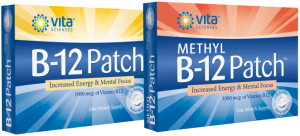
Get the Vitamin B12 Patch- Choose with Methyl or non-Methyl! Buy Now
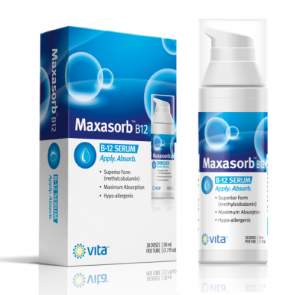
Try fast-absorb Maxasorb Vitamin B12 Cream. Hypoallergenic. Buy Now.

